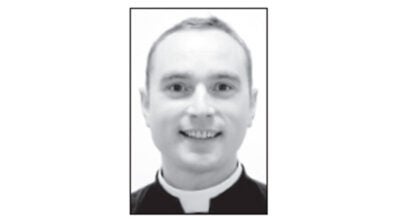COLUMN: You have searched me and known me
Published 8:30 pm Sunday, January 26, 2025

- Charles Qualls
|
Getting your Trinity Audio player ready...
|
I don’t think any of us is ever really ready to hear someone say, “I’ve got good news and I’ve got bad news. Which one do you want first?” I don’t think we like that situation.
That’s because we truly only want good news, and there is no right time to hear bad news. First or last. Well, I’m not going to play that game with us today. I’m going to tell you that I have good news only.
In fact, here is the best news I’m going to have a chance to share with you or with me today. I don’t want to wait until the end. So here goes. On balance, what I hear the Psalms acknowledging is that God has searched us, God knows us, and God still loves us with a fierceness that never ends and that defies understanding.
There are one-hundred and fifty psalms in this book of the Bible. Reading through them in a sitting would be a daunting task. If you want to sample them, try the 8th, 23rd, the 139th psalms.
These are songs, poems, laments, declarations of praise and the like. But the notion is that this is a collection of writings that could be set to music and sung. Ultimately, they are all fodder for hymns and anthems.
Psalms. Mizmorim in the Hebrew, meaning “Hymns.” Psalter is from the Greek psalterion, probably taken from the Hebrew word nebel meaning stringed instruments.
One way or another, this is scripture with a soul. Scripture that sings. These one-hundred and fifty psalms were composed and compiled over a long period of time. They are not arranged in the order they were composed, so don’t assume you are looking at older, younger and others in the middle.
Some are from the time of Saul, David and Solomon, the Monarchies. That means they are around twelve-hundred years before Christ. Others might have been written as late as four-hundred years before Jesus’ time. They are the new hymns that grumpy church folks would have griped about having to learn in antiquity.
Among the many, many writers of these psalms were no doubt court poets, cultic prophets, priests and scribes. If I generalized, what might be some key themes these psalms tend to feature? A God who rules over Creation is an obvious point that so many of these want to emphasize. This God is powerful, but attentive. All knowing, ever present.
Another key theme is that this is a God who is accessible. Long before their worship accommodated or encouraged direct access to God, the Psalmists seemed to sense and indicate a more personal understanding. A personal encounter was possible, if we listen to the testimonies found here.
Another theme might be that worship was primary. I like that one, because it matches up with the Deuteronomic call that God issued as the Hebrews were first organized as our spiritual ancestors. That call to worship has not been rescinded over the centuries that believers have followed Yahweh God.
Cultural changes in laws, and consequently church attendance, began to show up in a decline as early as the late 1960s nationwide. But the truth I stand before you and remind us all of is that God has not changed.
God has not recalled the instruction for us to gather regularly and on the Sabbath. The Internet and the prevalence of wonderful technology like Livestreams were never intended to keep people who are able to be here– from being here.
These psalmists wrote in great part because worship was clearly a priority to them. They understood something that we’re going to be calling upon our membership in 2025 to remember. Sunday isn’t just a big ole fun-day.
The psalms were worship aids, and what a treasure trove they are. The psalms give voice to both the highs and the lows of human experience. That much is evident if we sample them even briefly.
That’s just the thing about the Psalms. It’s all in there. If we’ve thought it, wondered, prayed, hoped or sweated it, someone in Psalms has already set it to poetry or prose for the purpose of music joining in and leading us in worship.
I could go on. But if you must sum up this colossal group of psalms, here is one way you might do it. What I hear Psalms acknowledging is that God has searched us, God knows us, and God still loves us with a fierceness that never ends and that defies understanding.
DR. CHARLES QUALLS is senior pastor at Franklin Baptist Church. Contact him at 757-562-5135.





